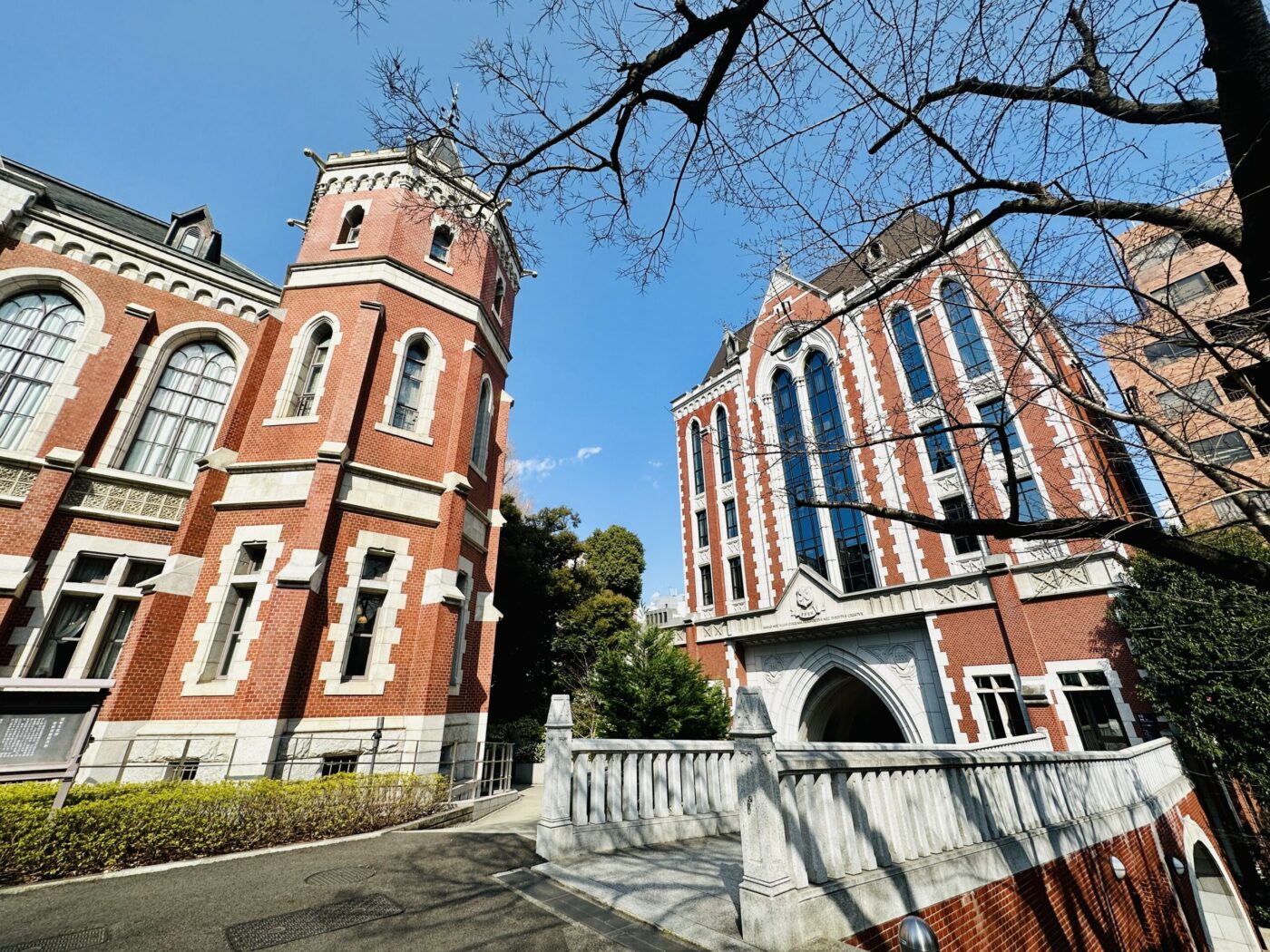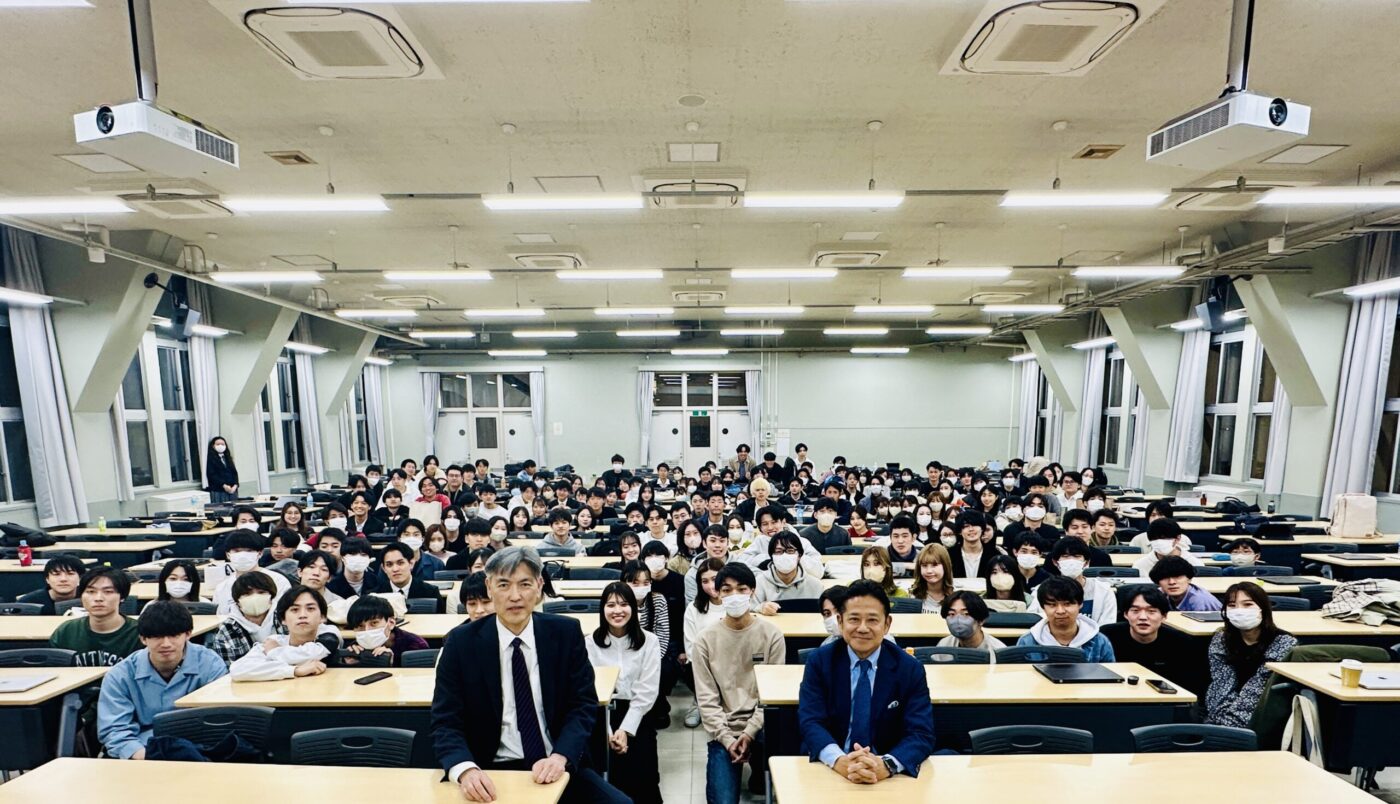Today’s lecture flow
▼Mr. Sugita – Group dialogue for dialogue with leaders
▼President Kohei Ito and Prof. Tamura – Dialogue with leaders
Learning of the students – Extracts from the reflection sheets submitted after the lectures
●Third-year student, Faculty of Commerce
I realized how poor my questioning skills were.Based on the flow of “episode → fact → question” that was discussed before the start of the dialogue, I had prepared myself, including work before class, to correctly convey the intention of the question at the one and only opportunity to ask, and to draw out answers related to the areas I wished to ask.However, as a result of focusing on explaining the branches and leaves, I could not convey the questions I wanted to ask and could not draw out the answers to the questions I really wanted to ask.As is the case with questions at the Diet meeting, I was reminded once again that too many redundant questions can break the respondent’s concentration.
In my daily activities, I know that long stories and sentences have been an issue since last year.In my self-introductions and future work, as well as in the next dialogue time with the leader, I would like to realize the ability to ask questions and formulate communication to draw out what the other person has to say as a correct “listener” and make it my very own.
Listening to the President’s answers, I was impressed that he correctly understood the questions and answered them while separating them into two categories: “what is possible” and “what is not possible in the current situation.I would like to continue to make a conscious effort to raise the level of dialogue as I ask questions of many people and as I myself am asked questions.

● Third-year student in the Department of Law, Faculty of Law
After listening to the President’s answers, I felt that he was answering the questions as a person who is standing on top, but on the other hand, one of my friends who were present (mainly in response to questions about improving the class system) said that “the President is too much dependent on others”.He also pointed out that “I am saying that I am doing this and that, but the people around me are not following or doing it,” which is an example of leadership failure. On the other hand, I personally recognize the importance of initiative and independence, so I can only hope that the President’s words were made with our true concern in mind.Although I could not deny that the President’s answer was a bit too formal, I felt that the inability to give a concrete answer was a problem that comes with the position of leader.I was also impressed by the aggressiveness of the questions posed by the participants, but the way some of them asked questions and the way they delivered them made me feel embarrassed (I am aware that this may have been the case with me).
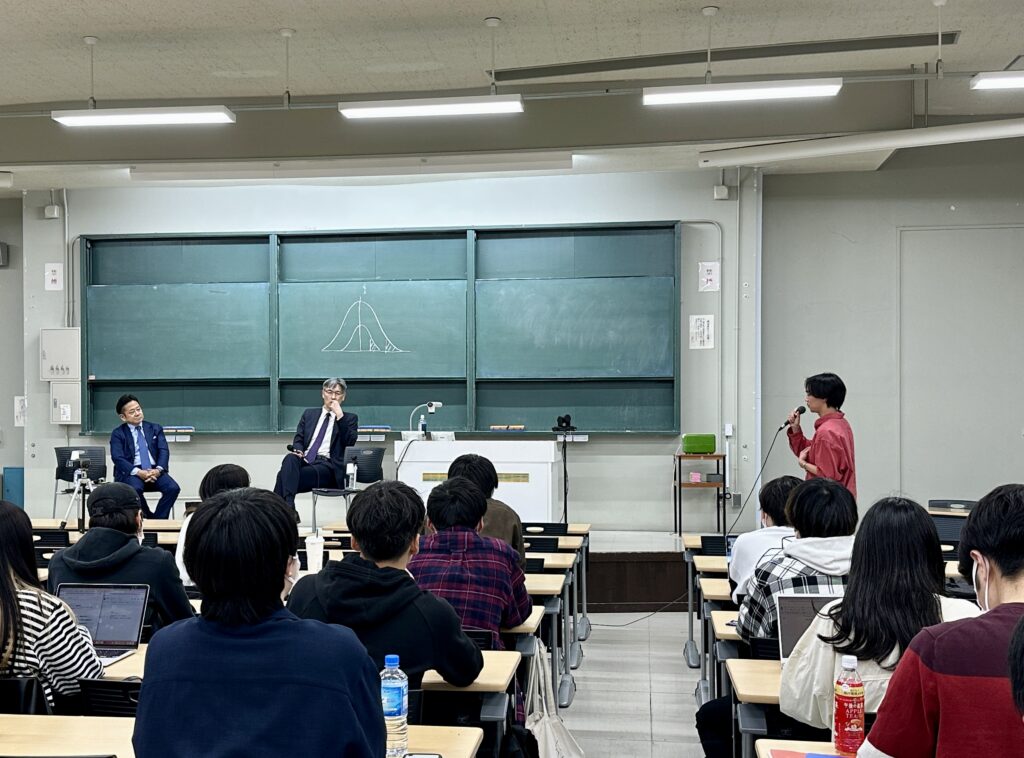
●A third-year student at the Faculty of Commerce
What I felt during my interview with President Ito was that there are many passionate students at this university. When he asked for questions, I had expected that they would be too overwhelmed to raise their hands or that only a few would do so, but the questions were so numerous that we had no choice but to extend the time.First of all, I was strongly impressed by this and felt proud of myself for putting myself in a university that attracts such students. Among the questions, I got the impression that many students wanted to change the system of this university.
I was surprised that the president normally does not like change, would listen to the student’s opinions and even give them concrete advice.
On the other hand, there was no proactive discussion about what the president himself would do (only that he was “talking”), so I would like to see how he will reflect our voices in the future.

● Third-year student in the Department of Law, Faculty of Law
There was so much to think about from the lecture that it was really difficult to summarize what I learned from the day.What I felt as everyone repeated their questions was that no one, including me, knew the President’s thoughts and work.I think that is why so much frustration was directed at the President. I felt this was the biggest problem.Of course, if you do your own research, you can gather a little information about the president’s thinking and work.However, just as politics has lost credibility due to its opacity, what the president is working on is also invisible to the students.I thought it was important for both the president and us, who share the same aspiration to improve the university, to change this situation.
Many of the questions were about dissatisfaction with the current situation, and I was impressed by how many of my classmates were able to tap into that, but at the same time wondered how many of them had done something other than ask questions today in order to change the situation.I was seated in the back during the lecture, so I could see how everyone was doing in the lecture.Some of the people who were asking questions to the president were always sleeping in their regular classes.Since I was not able to ask any questions, I am not qualified to say anything about those people, but I felt that if there is still much that can be done, as the President urged us to do with our signatures, then what we lack is the ability to take action.I want to be someone who can take action to change the current situation.
I couldn’t complete the class by myself, so I went home and talked about the class with my parents for the first time since I became a third-year student.It was such a meaningful lecture for me. It was a time when I sincerely wished that there would be more lectures like this one.
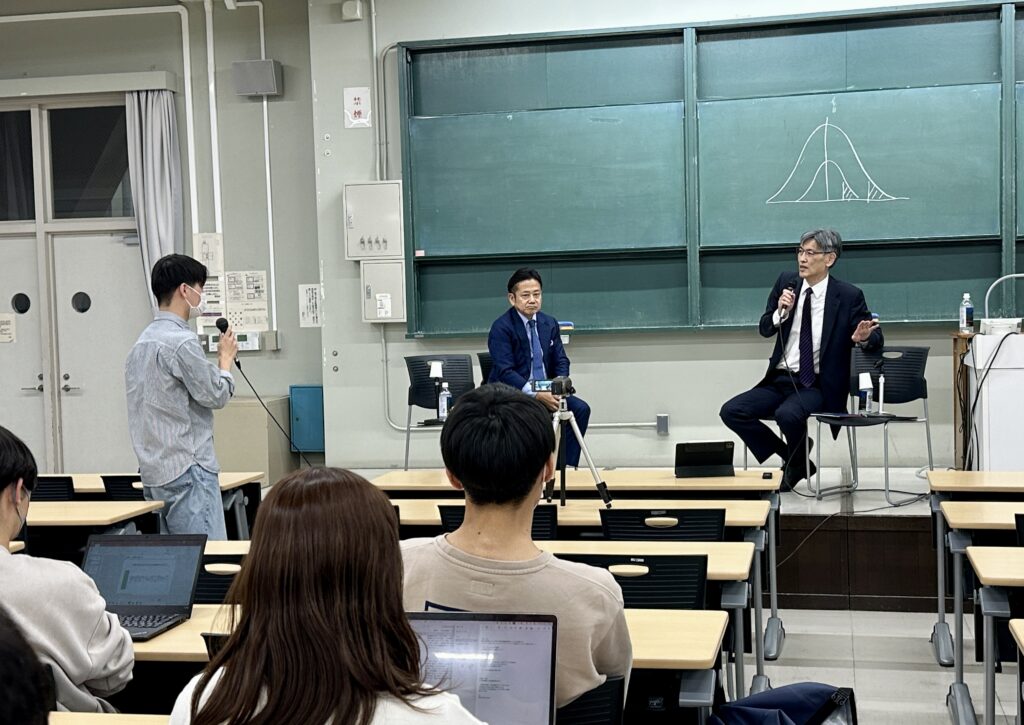
● Third-year student in the Department of Law, Faculty of Law
In this class, I had an opportunity to ask questions to President Kohei Ito and get answers, and I learned various things even without asking questions.The most interesting thing was that students’ values change depending on the community to which they belong.One question from a student in the economics department was, “I would like to elect the university’s president by the election of the students.Having studied law, I intuitively thought that direct election would be dangerous because of the risk of plebiscite.Another student from the Faculty of Economics commented that a waiting system should be introduced in the event of course cancellations and that this is clearly a good thing and should be transmitted by the President without following the procedures.In my opinion, the correct procedure is the only way to ensure the goodness of the system.I sensed a fundamental difference in the concept of “correct.This experience reaffirmed for me the importance of interacting with various people and exchanging opinions, and at the same time, I felt that I would like to broaden my knowledge.
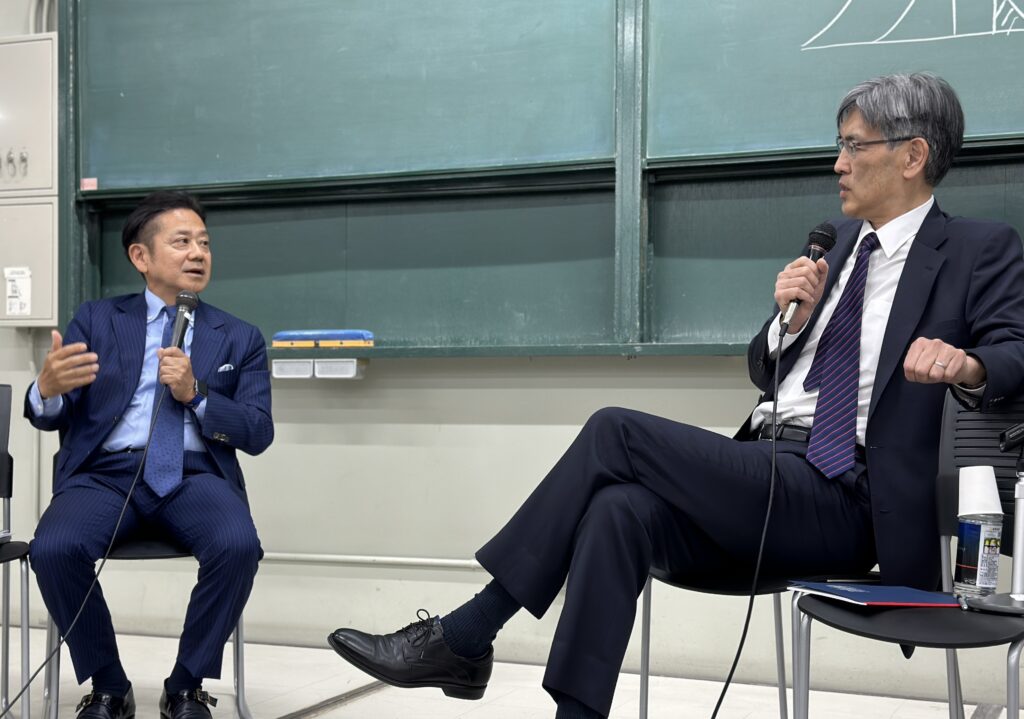
● Third-year student in the Department of Law, Faculty of Law
● Third-year student in the Department of Law, Faculty of Law.As for my personal impression, I regret that I could not organize my questions due to my lack of preparation and could not ask them during the lecture.Therefore, I basically listened to the dialogue between other students and the President during this lecture, but listening to it objectively, I thought that questioners should show more appreciation and consideration to the respondents (the President).In the first sentence, students can add, “Thank you for always running the school.”or ” I am grateful that we students can have this student life through the daily efforts of the President.”. If you begin your question with an expression of awe, you will create a more relaxed atmosphere, and the respondent will be more inclined to answer politely.I sensed a racy atmosphere throughout the course of the lecture, but this lecture was a question and dialogue, not a place to complain.From an objective standpoint, I thought that if the questioners could be tactful and considerate of the atmosphere and observe minimal manners, that would also be admirable leadership.
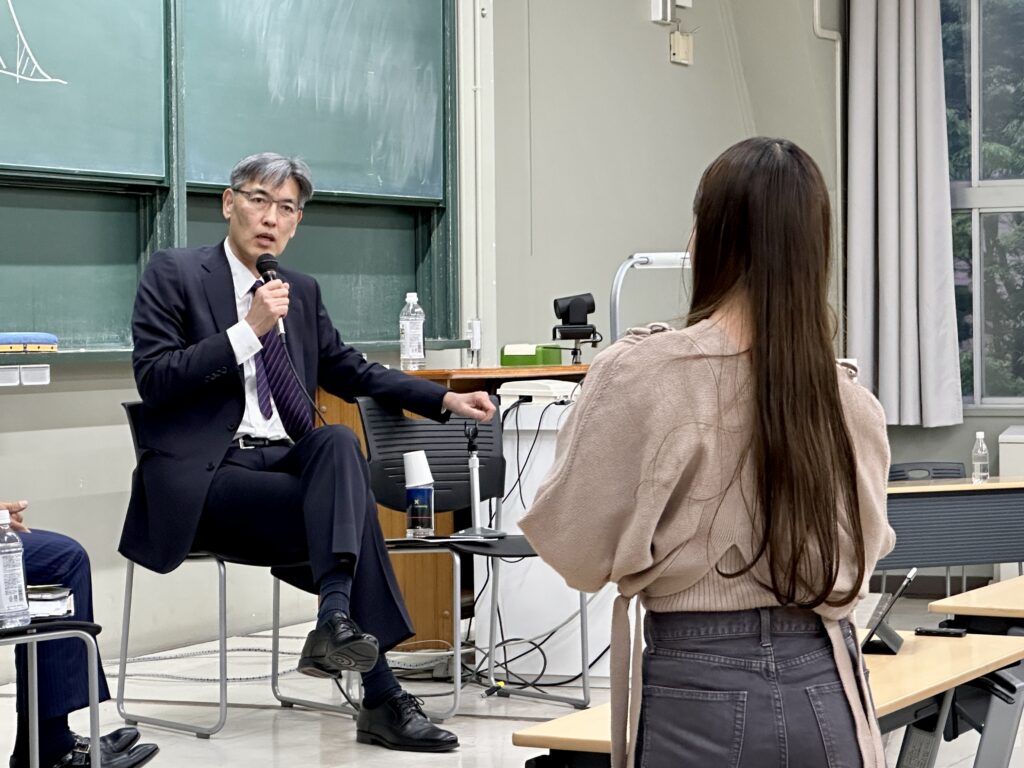

 Twitter
Twitter Instagram
Instagram